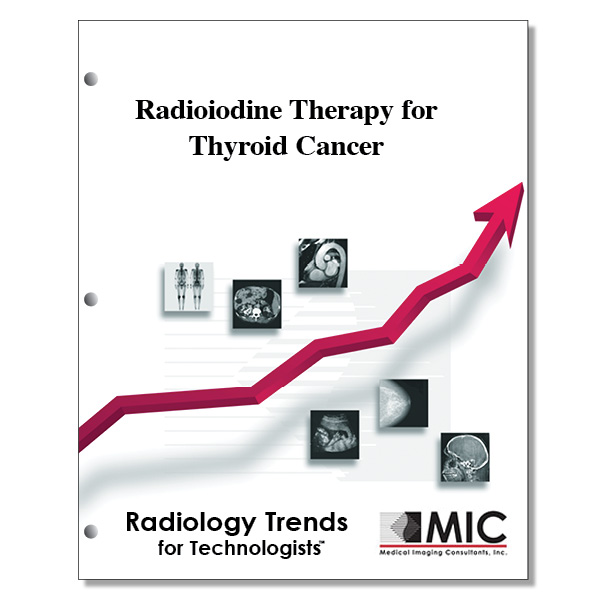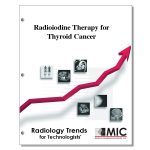

Radioiodine Therapy for Thyroid Cancer
Objectives of radioiodine therapy for thyroid cancer are presented, and agents, targets and treatment strategies for iodine-refractory thyroid cancer are discussed.
Course ID: Q00422 Category: Radiology Trends for Technologists Modalities: Nuclear Medicine, Radiation Therapy2.0 |
Satisfaction Guarantee |
$24.00
- Targeted CE
- Outline
- Objectives
Targeted CE per ARRT’s Discipline, Category, and Subcategory classification for enrollments starting after February 24, 2023:
[Note: Discipline-specific Targeted CE credits may be less than the total Category A credits approved for this course.]
Nuclear Medicine Technology: 1.50
Procedures: 1.50
Endocrine and Oncology Procedures: 1.50
Outline
- Introduction
- Thyroid Cancer Pathophysiology, Radiobiology, and Demographics
- Current Utilization of Radioactive Iodine Therapy
- Patient Selection
- Dose Selection
- Iodine-Refractory Disease
- Options for Iodine-Refractory Disease
- Reinduction of Iodine Uptake
- Multitargeted Kinase Inhibitors
- Conclusion
Objectives
Upon completion of this course, students will:
- be familiar with the FDA approval of 131Iodine
- identify which cancer is commonly treated with radioiodine
- identify what cells comprise the thyroid gland
- be familiar with the role of radioiodine in medullary thyroid cancer
- identify the undifferentiated thyroid cancer cells
- identify the differentiated thyroid cancer subtypes
- identify the categories of radioiodine use for thyroid cancer
- be familiar with the thyroid cancer risks after remnant ablation
- be familiar with criteria for patient selection for adjuvant therapy
- understand the meaning of radioactive iodine therapy
- be familiar with the level of toxicity for thyroid cancer treatment
- identify the organizational guidelines for thyroid cancer therapy
- be familiar with ATA guidelines for thyroid cancer patients not requiring radioiodine therapy
- be familiar with the tumor size criterion for whom radioiodine therapy is definitely recommended
- identify the criteria for radioactive iodine therapy
- be familiar with the radioactive properties of 131Iodine
- be familiar with the factors taken into account when selecting a radioiodine dose for therapeutic intent
- identify who is credited with the whole-body and blood dosimetry for radioiodine therapy
- identify the radioisotope of iodine that is positron emitting
- be familiar with the advantage of using 124Iodine for quantification of individual thyroid lesions
- be able to define iodine-refractory disease
- identify the drug approved in 2013 for use in iodine-refractory disease
- be familiar with the PET/CT radiopharmaceutical used to help stratify iodine refractory disease
- identify the role of selemetinib in iodine-refractory disease
- be familiar with the signaling pathways exploited in thyroid cancer
- understand the role that sorafenib plays in the treatment of iodine-refractory disease
- identify tumor cells signaling pathways that sorafenib effects
- be familiar with the disadvantages of current targeted therapeutics
- identify 131Iodine as a theranostic agent
- understand the potential 124Iodine PET/CT may have on response to radioiodine therapy
